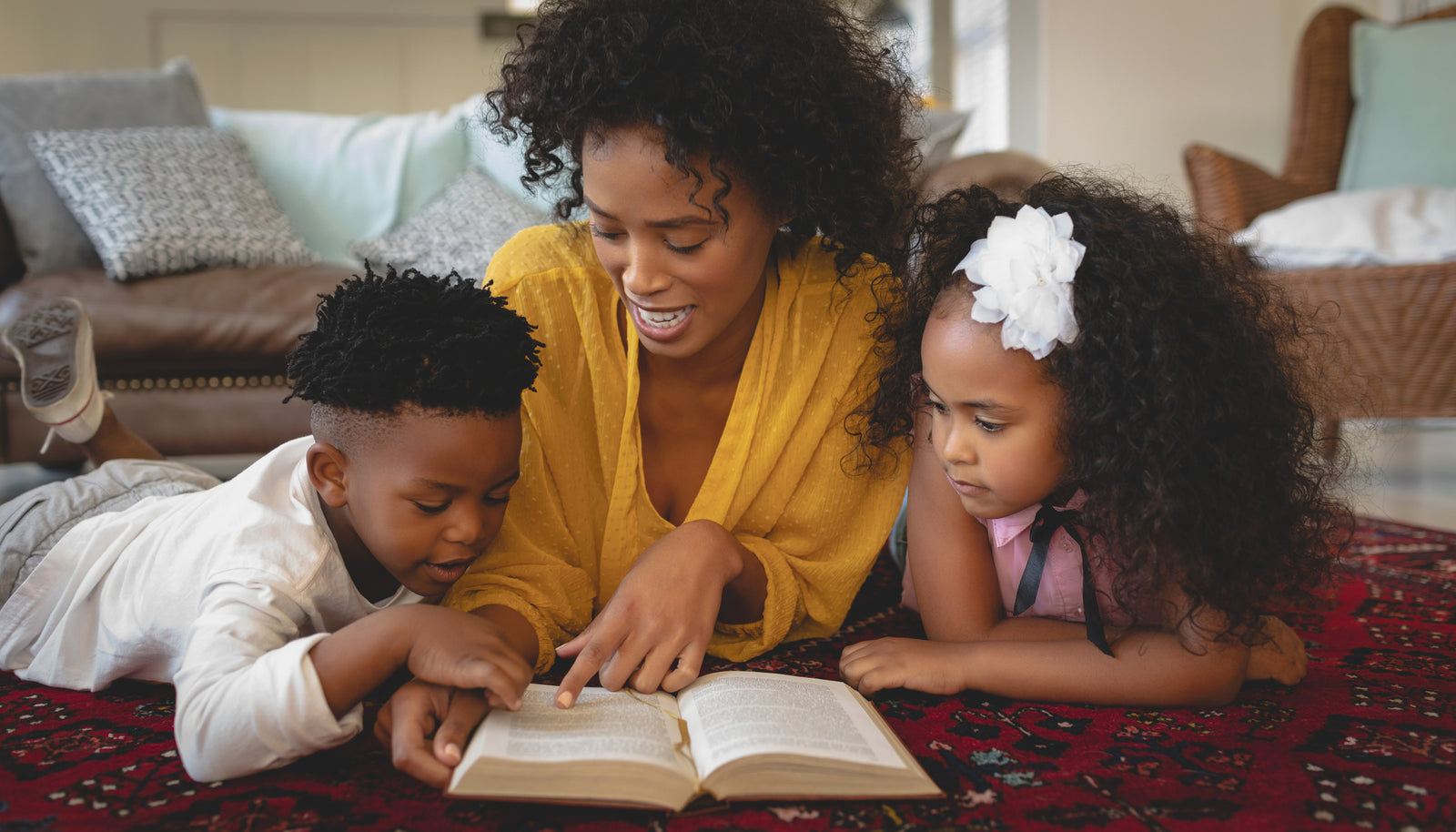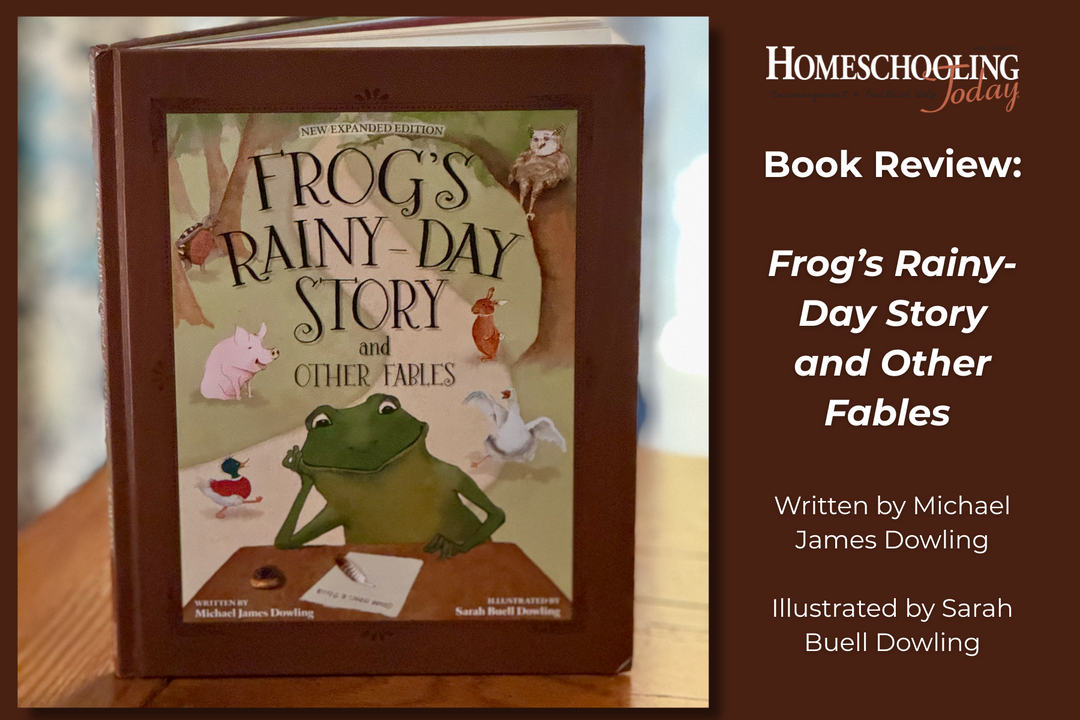The Secret to Being Consistent in Your Homeschool

You can be consistent when it comes to homeschooling your kids! Learn the secret that sets you and your kids up for success.
Many homeschool mom's have shared with us that they struggle with consistency—and feel guilty because of it.
I don't think there's anyone who will argue that our children don't need consistency in their lives. Consistency gives them a sense of security.
Think about how important consistency is when it comes to discipline. How can a child know how to behave if expectations are constantly changing? But when our children understand our expectations and know that we will follow through, we've established healthy boundaries for them.
The same is true for school. Kids need to know what to expect from us and what our expectations are of them. There is a lot of freedom, though, in what that looks like for each family.
What Consistency is Not
1. Consistency isn't about being rigid.
One of the synonyms for consistency is equilibrium. Equilibrium is "a state in which opposing forces or influences are balanced."
When it comes to homeschool consistency it's the ability to balance flexibility with routine. It's not a rigid adherence to a fixed schedule, but it's also not a free-for-all each day. Kid's don't need to ask, "Are we doing school today?" or "Do we have to do school?" They already know that their education—in whatever form or according to whatever philosophies or methods you follow—is a priority in your home.
2. Consistency isn't about being perfect.
If you think that by being consistent you'll somehow reach that illusive "perfect" homeschool, I'm afraid you will be disappointed. Our children are growing and learning and so are we. That's a bit messy at times.
So consistency isn't about being perfect. It's about setting up an environment where real learning takes place. Where people fail and try again, where resources and curriculum don't always live up to the hype, where we have to take the day off every once in a while and regroup. It's about enjoying the freedom and flexibility of homeschooling without using those as an excuse to do nothing.
How to be Consistent in Your Homeschool
If you want to be consistent in your homeschool, then develop a framework for homeschooling that will give your kids boundaries while cultivating a love of learning. How?
- Begin by thinking through your educational priorities. Here are some questions you might ask:
- How will I address the needs of the whole child—heart, mind, and soul? If one of the reasons you homeschool your children is to help them grow in their faith, then being in Scripture and relating it to what they're learning, will be a priority.
- What subjects do I believe my kids need to do daily? For example, skills subjects such as language arts and math—those subjects that are the building blocks to learning other subjects—were the ones we focused on. And since my kids did better in the mornings, that's when we did them.
- How will I approach teaching other subjects? Will we try to cover each subject every day or will we learn about things like science or history a certain number of days each week? How can I combine subjects and be as efficient as possible with our days?
- How can I help my kids see learning as an adventure instead of something they have to do? What can I do to help cultivate a love of learning? What would make learning more fun for my kids and for me?
2. Create a homeschool routine that reflects your priorities and addresses the needs of your children.
Notice I said routine instead of schedule. Schedules are great if that works for you, but for many of us a routine gives us structure while embracing the freedom and flexibility that comes with homeschooling.
Through the years our routine varied, but as an example let me share what it looked like when my boys were in elementary school.
- Bible time. My husband led this time with them when my boys were in elementary school.
- Reading aloud. Reading aloud has so many great benefits—from developing language arts skills to building close family relationships. It was a calm start to the day that we all looked forward to.
- Math. So this was never a favorite subject in our home, and one I wish I had approached differently. But one thing I did understand: my boys needed to get this done in the morning because it took twice as long in the afternoons!
- Language arts. We used a natural approach to teaching language arts. By using real books we were also learning about all kinds of other subjects as well! These skills are foundational to learning other subjects, so it was a priority in our homeschool each day.
- Lunch. We don't skip meals around here!!!
- Various other subjects. Sometimes it was science and sometimes history. Geography was mixed in when it fit with other studies (it really is best understood in context!). PE, art and music often happened on Fridays at our co-op. And art skills were often incorporated in science or notebooking activities as well.
The Secret to Being Consistent in Your Homeschool
Here's the thing though: We will never be consistent when we hate what we're doing. We will never be consistent if we are simply trying to check someone else's boxes.
That's why we started with questions about our educational priorities.
You need to homeschool in a way that reflects who you are as a family—a family made up of wonderfully unique individuals.
The secret: Consistency is rooted in finding joy in your homeschool journey. It's about making learning an adventure you can't wait to go on together.
It happens when you choose to homeschool boldly.
Next week we're going to share some ideas to make homeschooling a learning adventure you'll all enjoy!
Kay Chance homeschooled her two boys for fifteen years. While teaching them, she discovered a passion for writing and developing curriculum resources. She loves sharing natural learning methods and creative lesson ideas with other homeschooling parents in her column Learning Naturally.
Kay is the co-executive editor of Homeschooling Today magazine, author of the older extensions for the Trail Guide to Learning series, and a freelance writer and content creator. She makes her home in Texas with her husband Brian.















